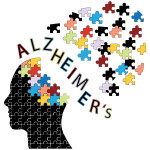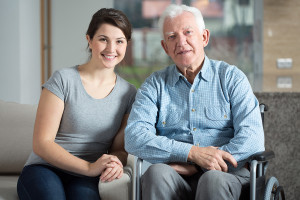Senior Care Hollywood FL

If you have been on a senior care journey with your elderly loved one for any length of time you likely already know how valuable a pet can be in their later years. Spending time with a companion animal can make your parent feel more involved and important in their lives, ward off feelings of depression and anxiety, and even lower blood pressure and improve cardiovascular health. While just having a pet around can provide exceptional benefits, actually focusing elements of your care around the animal can increase these benefits.
Use these tips to make caring for your parent’s pet a valuable part of your senior care efforts:
• Taking walks together. Giving a dog a walk is one of the basic aspects of caring for them, and it can be an extremely beneficial part of your senior care journey. A senior who is reluctant to participate in exercise may be willing to put their dog on a leash and head out for a few laps around the neighborhood. While they may not see the benefit of exercising for themselves, they might be much more willing to do what they know that they need to do for their pet. Taking walks burns calories, improves cardiovascular health, strengthens and conditions the joints and muscles, and improves balance.
• Playing. A dog that receives regular physical and mental stimulation through play is going to be a much more cooperative and enjoyable dog to have as part of your parent’s life. Playing with their dog also helps to boost your parent’s emotional health, offers extra physical activity, and can create an environment that promotes sharing, conversation, and social interaction. All of these are vital to high mental and emotional health.
• Feeding and watering. Structure and predictability can be exceptionally beneficial in a senior care journey. Especially if your elderly parent suffers from cognitive limitations such as from Alzheimer’s disease or another form of dementia, making sure that their schedule stays consistent can help to reduce anxiety and other negative emotions. Doing something at the same time every day, such as feeding and watering a pet, also encourages stronger cognitive processing and memory skills.
• Grooming. Grooming a pet is a show of love, nurturing, and compassion that can be extremely beneficial for your loved one’s emotional health. Much like caring for a doll can give a senior with Alzheimer’s a greater sense of security and provide recognizable activities, so can grooming a pet. Even just sitting with a well-tempered, patient pet and gently brushing or combing through its fur can give your parent the sense that they are taking care of that animal. This speaks to the nurturing instincts that remain strong with many seniors. As with doll therapy, this can help your parent to open up emotionally, provide a calming, soothing effect, and reduce the chances of issues such as depression.
If your parent does not already have a pet, consider making a trip together to the local animal shelter. Here you can find a variety of animals looking for a forever home. This will give your parent a strong connection to the animal from the very beginning and help to create a meaningful and beneficial relationship.
If you or an aging loved one are considering in-home senior care in Hollywood FL to provide companionship, compassion and motivation, please contact the caring staff at Responsive Home Care. Call today 954-486-6440.
 Responsive Home Care is pleased to announce that Melissa Yost, BS, HSA, Registered Nutrition & Dietetics Professional, has recently joined our team as the Director of Business Development. Melissa is responsible for building and expanding relationships with new and existing referral sources throughout Broward County.
Responsive Home Care is pleased to announce that Melissa Yost, BS, HSA, Registered Nutrition & Dietetics Professional, has recently joined our team as the Director of Business Development. Melissa is responsible for building and expanding relationships with new and existing referral sources throughout Broward County.


 According to the 2012 US Census, husbands were more than three times as likely to pass away before their wives do, as observed in the 36.9% of women aged 65 years and older who had become widows, compared to the 11.5% of same-aged men who had become widowers. Losing a spouse can lead to feelings of guilt, loneliness, and isolation – all of which and more can last from months to years.
According to the 2012 US Census, husbands were more than three times as likely to pass away before their wives do, as observed in the 36.9% of women aged 65 years and older who had become widows, compared to the 11.5% of same-aged men who had become widowers. Losing a spouse can lead to feelings of guilt, loneliness, and isolation – all of which and more can last from months to years.